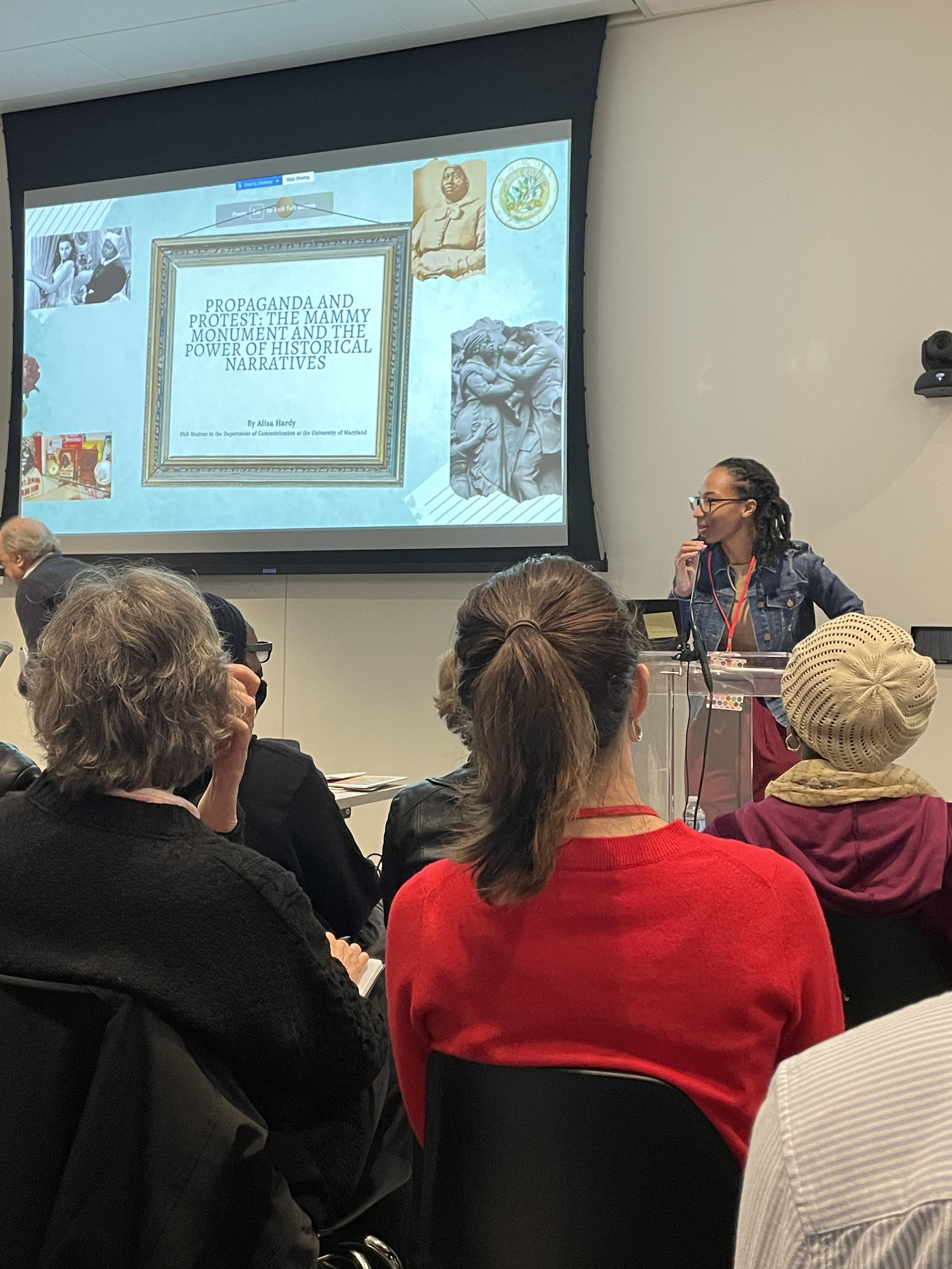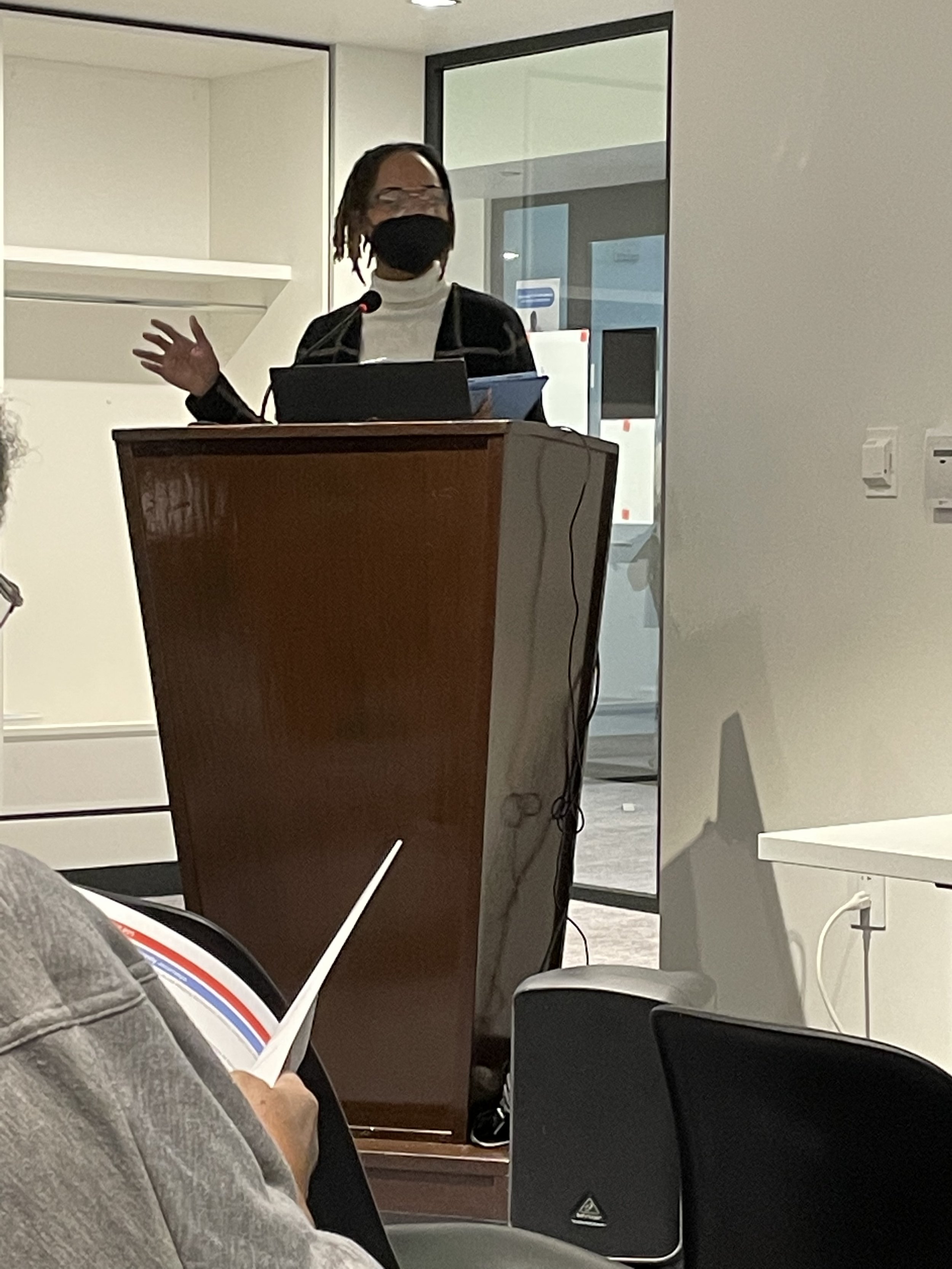Public Scholarship
My commitment to civic education is reflected in my efforts to reshape the course curriculum for my current department, enabling me to acquire academic knowledge and sharpen my critical skills necessary for teaching engaged and informed citizenship.
Teaching Mary Church Terell’s “Life as We Climb”Black Activism in the Nation’s Capital
This workshop was presented at the Black Lives Matter Curriculum Fair in 2024. During this interactive workshop, participants delve into the life and legacy of Mary Church Terrell, a trailblazing American activist whose tireless effort shaped the fight for racial equality and women’s rights. Born September 23, 1863, to former slaves in Memphis Tennessee, Terrell dedicated her life to racial uplift. Her mission aimed to empower and enlighten Black individuals to combat racial discrimination by advancing themselves and other members of their race by promoting community work, prioritizing education, and participating in political activism. As a prominent activist in the DMV area, Terrell’s profound words “lift as we climb” resonated deeply with many Black people and became the guiding motto of the National Association of Colored Women (NACW) that she co-founded in 1896.
In this engaging session, participants will embark on a journey to uncover some of Terrell’s remarkable life and the profound significance of her activist rhetoric. The workshop will commence with a brief historical overview of Terrell, providing participants with a deeper understanding of her pivotal role in U.S. history. During the session, we will complete an interactive analysis of one of Terrell’s influential speeches about D.C., offering participants an opportunity to explore her rhetoric and use of literary devices. Concluding this enlightening exploration, we will unveil a rich array of archives, books, videos, and resources available on Mary Church Terrell. This curated collection aims to equip students, educators, and activists with valuable materials to integrate Terrell’s story into their curriculum, enabling them to impart her inspiring legacy to their students. Join me as we honor the legacy of Mary Church Terrell’s indelible contributions and explore the vast resources she left behind that can empower educators to bring her remarkable journey to life in their teachings.
Reimagining the Rhetoric of Black America: Teaching Black History and Anti-racist Principles
Hardy, Daviana Fraser and Dr. Shawn Parry-Giles presented at the Innovations in Teaching and Learning Conference in 2023.
Hardy and Fraser are PhD candidates in the Department of Communication at the University of Maryland. Hardy’s research examines the history of Black women's rhetoric and the implications and possibilities for their discursive practices online. Fraser's focuses on archival research and archival politics as they relate to Black memory and identity. Both candidates teach COMM360: Rhetoric of Black America which is a historical survey of the rhetoric of Black Americans from the colonial period to the present.
The Teaching and Learning Transformation Center provided the course with an Experiential Learning grant that was used to redesign COMM360 into a course that aims to advance anti-racism and social justice principles and actions. The course features the study of public discourse by Black Americans in historical context that informs discussions about present issues of racism, political activism, and digital racial justice. Presenters will share their teaching strategies for various scholarships on African American political activism as well as the two major projects in COMM360 were designed to guide students on using their communication skills (speaking, writing, digital messaging) to advance anti-racist solutions.
Propaganda and Protest: The Mammy Monument and the Power of Historical Narratives presented in March 2023 at the D.C. History conference
This presentation examines materials from the United Daughters of Confederacy (UDC) and the National Association of Colored Women (NACW) regarding the construction of a Black Mammy monument in DC. During the early 1920s, the Virginia Chapter of the UDC proposed an erection of a mammy statue in Washington D.C to recognize the mammies of the South. As Patricia Hill Collins observes, the mammy stereotype characterizes Black women as “the faithful, obedient servant” and represents “the normative yardstick used to evaluate all [their] behavior.”
The mammy is a dominant stereotype of Black women from the enslavement era that was reified to maintain their subordination to white supremacy. In 1922, Democratic Senator John Williams of Mississippi, with the support of UDC, submitted Senate Bill S. 4119 advocating for a national “monument in memory of the faithful, colored mammies of the South.” The only restrictions Senator Williams put on the building of the statue were that it could not be built in the White House, Capitol Building, Library of Congress, or Potomac Park. To combat this, the NACW alongside the National Association for the Advancement of Colored People (NAACP) gave public speeches describing their opposition to the statue and posted letters in the Black press. These letters in the Black press worked to reject Lost Cause ideologies which emphasized the current racial order that was maintained through Jim Crow laws. This presentation will examine materials from the archives of newspapers including the Confederate Veteran, the Monitor, and the Colorado Spring regarding the UDC's advocacy for the archive and the NACW resistance toward its erection.
The Capital Was Never a Paradise: Mary Church Terrell and the Struggle for Racial Equality Presented in March, 2022 at the D.C. History Conference
Mary Church Terrell was a public orator and writer who used her platform to advocate for the liberation of African Americans. Her speech, “What it Means to be Colored in the Capital of the United States,” was delivered at the United Women’s Club in Washington, DC on October 10, 1906. In this speech, Terrell challenged the belief that DC was a “paradise” for African American people by illustrating how systemic barriers on education, housing, and jobs hindered them from obtaining full citizenship. African Americans, as Terrell assessed, were excluded from public spaces such as theaters, restaurants, hospitals, and schools, which impacted their capacity to enjoy the Capital. The presenter will explore the contextual elements surrounding Terrell’s speech to demonstrate the various ideologies and barriers that restricted equitable participation for African Americans in civic life.




